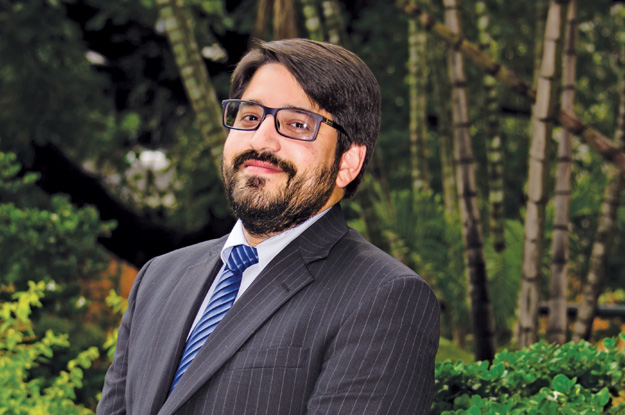
The Captain of Industry | The Musician | The Entrepreneur
The Educator | The Oil Expert | The Politician | The Economist
The Humanitarian | The Rights Advocate | The Foreign Leader
This article is adapted from Americas Quarterly’s print issue on Venezuela after Maduro. | Leer en español
Some of Asdrúbal Oliveros’ Twitter followers reacted bitterly in late 2017, when the 41-year-old economist announced his plans to join Venezuela’s opposition for talks with the government. There were expressions of disbelief, accusations of naïveté and worse: the suggestion that Oliveros was a traitor, that he was somehow complicit in the government’s crimes merely for wanting to sit down and talk.
It was a trying moment for the director of Ecoanalítica, one of Venezuela’s most respected data and analysis firms. He wouldn’t participate in negotiations to satisfy some political ambition; he was there to offer economic guidance amid the worst contraction in Venezuela’s history. And if it meant even half a chance at pulling his country out of the depths, Oliveros would sit down and do it again.
“The alternatives (to negotiation) are too painful,” he told AQ.
Oliveros fully understands the pitfalls of negotiating with a government that has turned a blind eye to the suffering of its own people. But as part of a younger generation of economists that has spent the vast majority of their adult lives under chavismo, he is one of few figures in Caracas capable of confronting the government and trying to find common ground at the same time.
That ability to conduct civil dialogue with chavistas will be a valuable and perhaps underappreciated part of any future political transition. While the current government is unpopular, chavismo itself retains many fans — the late President Hugo Chávez enjoyed approval ratings near 80 percent at the peak of his popularity in 1999. Unlike some better-known Venezuelan economists, especially those living in exile, Oliveros appreciates the political consensus-building that will be necessary to fix an economy 20 percent smaller than it was a decade ago.
Indeed, Oliveros said he tries “to keep a critical perspective, rather than an emotional one” in his continued conversations with government officials. He admits that has become more difficult in recent months as the crisis grows even worse. Ecoanalítica projects a 10 percent contraction this year; the IMF and others put the number even higher. Inflation in 2018 could reach 13,000 percent or more.
“We’ve become inoperable, an obsolete country,” Oliveros told AQ. “We need to return to modernity.”
Key to that, Oliveros said, is helping Venezuelans sift through government falsehoods over the state of the economy. In a recent video posted online by Venezuelan news site El Estímulo, Oliveros appears in a bright yellow polo shirt offering tips to survive in hyperinflation (make financial decisions quickly, consider taking out credit and, above all, help your neighbor).
Click here to see a 180-day plan for a Venezuelan recovery
The job of providing advice in a crisis is familiar to Oliveros. Ecoanalítica’s clients include more than 500 Venezuelan businesses, multinational firms and international organizations, many of which are struggling to come to terms with an economy in chaos.
“(Our clients’) biggest concern now is how to keep their operations afloat,” Oliveros said.
Even that is no small task. Price controls and restrictions on imports have left the country’s productive capacity in tatters.
As many as 4 million private-sector workers have lost their jobs since 2013. And despite profligate government spending on social programs, the poverty rate, which fell sharply in the first years under Chávez, is now above 80 percent.
Venezuela is in desperate need of foreign exchange, said Oliveros — reserves are under $10 billion, the lowest in more than two decades. Recovery will require rebalancing the exchange rate, possibly through dollarization or a homegrown replacement for the bolívar.
Any solution also will require a massive influx of financing from organizations like the IMF and World Bank, to stabilize prices and start rebuilding infrastructure; external debt is already reportedly around $140 billion, when Russian and Chinese loans are included.
Time is not on Venezuela’s side.
“Stabilizing the economy today is not the same as trying to stabilize it in 2013, when Maduro first came into office,” Oliveros said. “It won’t be the same tomorrow. Every day that passes, the costs go up.”
—
Russell is a senior editor at AQ






